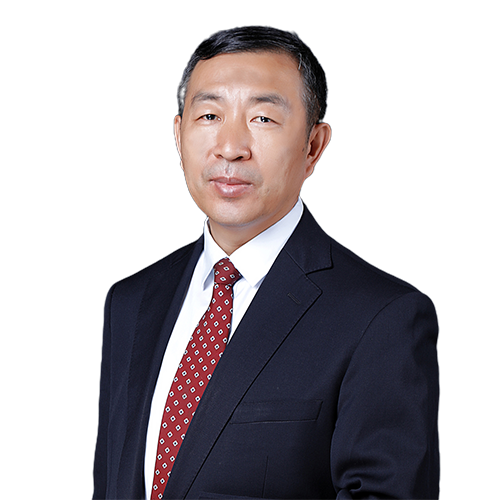On May 8, 2024, the “Frontier Theory and Practice Seminar on Registration of Real Estate and Equity Trusts”, which was jointly organized by the King&Capital Family Trust Law Center of Beijing Kyoto Law Firm and STEP China, was successfully held in Beijing. The event brought together a number of authoritative experts, scholars and practitioners in the industry to conduct in-depth discussion and communication on hot and difficult issues of real estate and equity trust registration, which is of far-reaching significance.
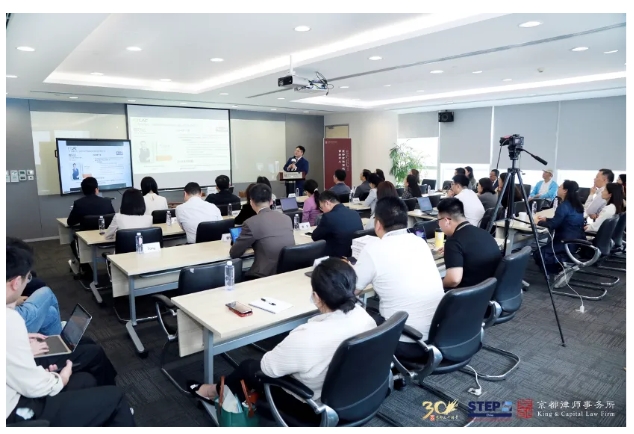
Activity Scene
At the beginning of the event, Mr. Xiao Shuwei, Party Secretary and Senior Partner of Beijing King&Capital Law Firm, delivered a welcome speech to the conference.
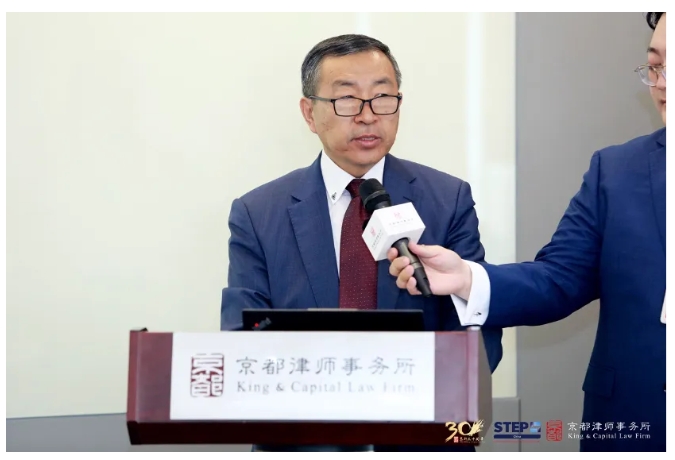
Mr. Xiao Shuwei's welcome speech
At the event, all the guests expressed their views and shared a series of valuable core arguments.
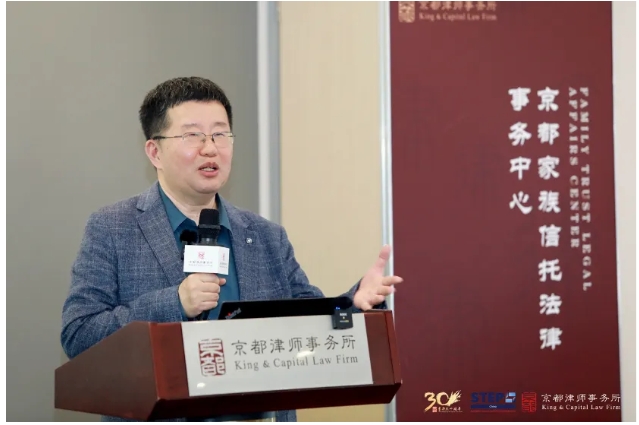
Keynote Speech by Prof. Han Liang
Prof. Han Liang pointed out that China's trust registration system has the problem of “sandwich rice”, i.e. there is a conflict between the theory of trust registration of civil law system and the system of property law.
In this regard, Prof. Han Liang proposed that in order to implement the requirements of inclusive finance and common wealth, the General Administration of Financial Supervision should be empowered to moderately supervise civil trusts, and reconstruct the system from the dual perspective of “registration of trust legal relationship + registration of property changes”, and innovatively proposed the establishment of a “national unified trust registration system” to give trusts the right to register their property changes. It also innovatively proposes the establishment of a “national unified trust registration system” to give virtual personality to trusts and unify the registration of the establishment, change and termination of trusts. In this way, the “barriers” between civil trust and commercial trust supervision can be broken, and the trust can be brought into common people's homes.
At the same time, Prof. Han Liang called for basic classification registration of trusts, such as distinguishing between revocable and irrevocable trusts, resident and non-resident trusts, etc., which can not only standardize the tax treatment, but also provide a strong basis for the judicial trial, and this theoretical framework provides a key idea for the design of the trust registration system and the revision of the trust law, which will promote the reform of the trust registration system to a new level.
After Prof. Han Liang's keynote speech, we came to the roundtable forum of the event, where Lin Wei, assistant to the mayor of Tongzhou District, Wang Zhangyue, general manager of Special Asset Service Trust Department of Foreign Trade Trust, and Prof. Gao Huiyun, an expert in tax law, shared their unique insights and put forward innovative suggestions through storytelling, examples and other forms.
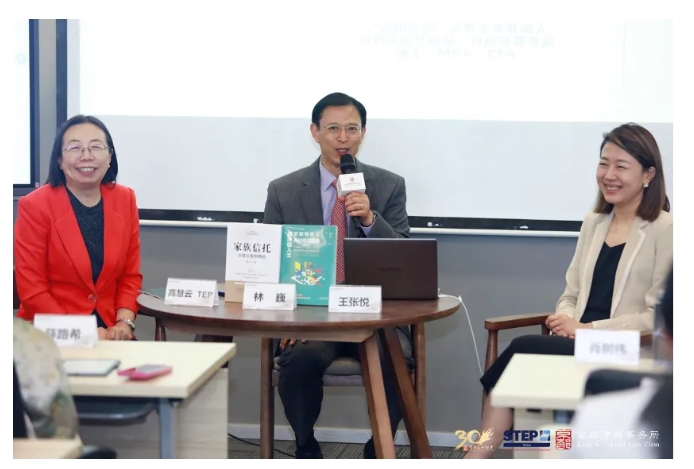
Roundtable Forum
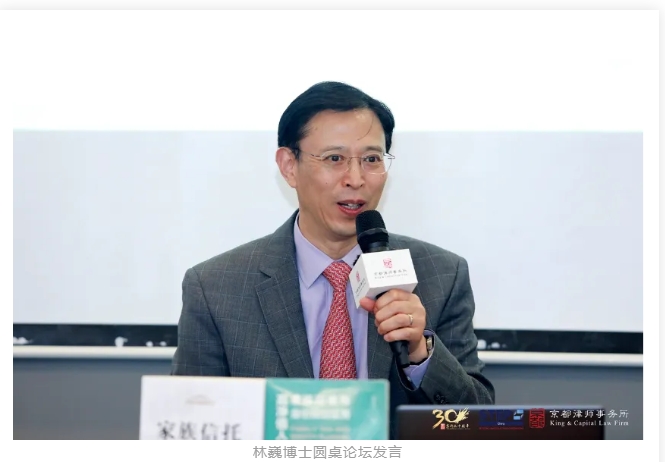
Dr. Lin Wei's Roundtable Speech
Dr. Lin Wei, Assistant Governor of Tongzhou District, shared a case of successful practice in registering real estate trust property in Tongzhou. This case is a special needs trust with autistic patients as beneficiaries, which successfully realizes property independence and lifelong care, and effectively solves the problems of unclear ownership and high transaction costs. In the course of practice, the district government joined hands with multiple departments to break through the bottleneck of cross-departmental collaboration and ensure the efficient completion of the case. In response to various difficulties in trust taxation, Lin Wei called for clarifying the main body of trust property tax obligations, filling the gaps in tax policies, and implementing differentiated tax rates for trusts for the purposes of pension, disability protection, and charity. The Tongzhou case provides valuable practical experience for the rest of the country.
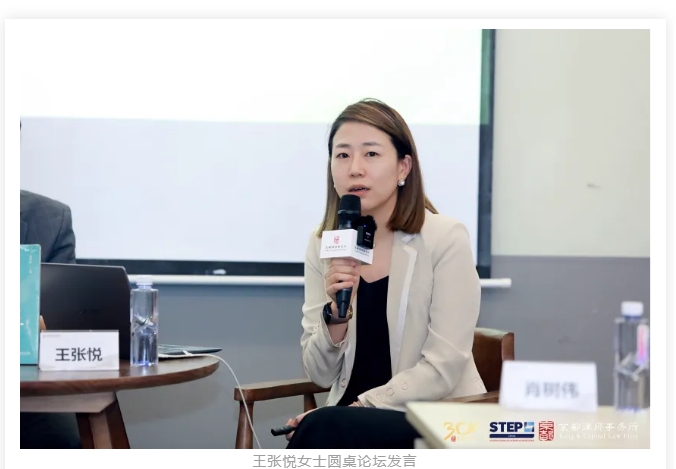
Speech by Ms. Zhangyue Wang at the roundtable forum
From the perspective of a trust company, Ms. Wang Zhangyue, General Manager of Special Asset Service Trust Department of Foreign Trade Trust, proposed to reduce the risk of equity trust through trust property registration to meet the needs of corporate relief and family inheritance. At the same time, trust tools, especially service trusts, have great potential in social governance scenarios such as bankruptcy and reorganization, prepaid fund supervision, trust-based property, and pension, which provides a brand new methodology for trust companies to develop their business and helps the industry transform into “service trusts”.
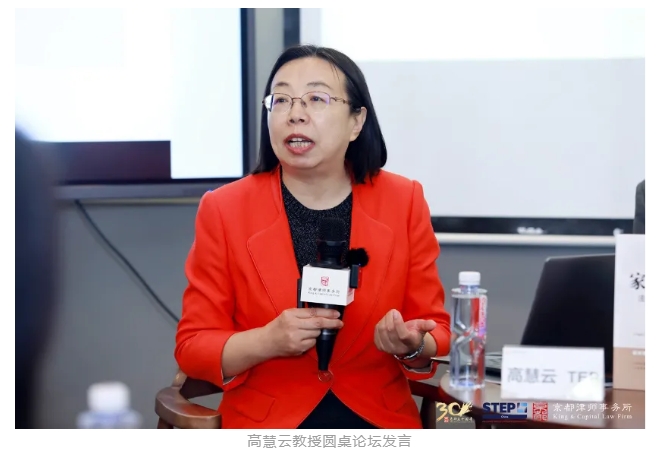
Prof. Gao Huiyun speaking at the roundtable forum
Professor Gao Huiyun, an expert in tax law, analyzed the current situation of the tax system for real estate and equity trusts, pointing out that the rigid costs of deed tax and income tax in the transferring process have restricted the development of trusts for the benefit of all. She suggested that with reference to international experience, charitable trusts and special needs trusts should be exempted from tax or adopt “non-transactional transfer” to reduce the tax burden, and put forward the compliance path to avoid the risk of mixing marital property through trust holding, which provided a feasible technical solution for the tax system reform.
In the following session, Mr. Wei Dongda introduced STEP, a global professional society for family inheritance and planning, and the on-site interactive communication, Mr. Wei Dongda firstly introduced the overview of the International Society of Trust and Asset Planning (ISTAP), the membership system and benefits, the STEP courses and certificates, STEP's various resources, and STEP's policy support in Mainland China, the activities of the China Chapter, the public number and the Chinese community.
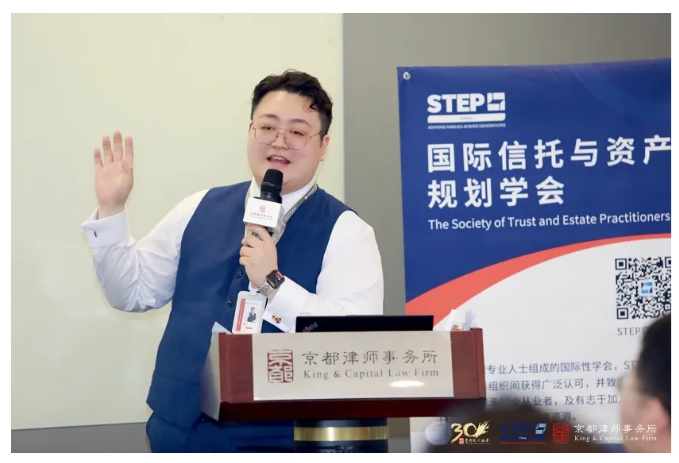
Speech by Mr. Wei Dongda
During the interactive session, the participants actively asked questions and exchanged ideas with the experts, who answered them patiently and carefully, which triggered a warm discussion among the participants.
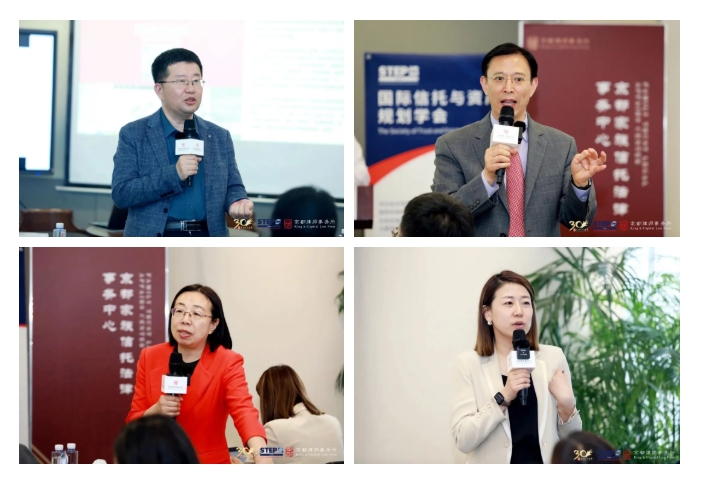
Several experts communicated with the guests
At the end of the event, a heavy news was announced on the spot: the monograph “Insurance Fund Trust Jurisprudence and Case Analysis”, which was elaborately written by King&Capital Family Trust Legal Affairs Center and published by China Rule of Law Publishing House, will be released soon. The early release of this book, which gathers professional wisdom and hard work, will inject professional power into the field of insurance fund trust.
Click the link to view details
Beijing's “Double First Order” case has become a benchmark for institutional innovation, verified the feasibility of the trust registration system, and provided a replicable path of “policy pilot → local breakthrough → industry popularization” for the whole country. The close linkage between the government, academia and industry has formed an efficient closed loop of “theory → policy → practice”, realizing cross-field synergistic development.
The successful organization of the “Frontier Theory and Practice Seminar on Real Estate and Equity Trust Registration” has brought new thinking and inspiration for China's real estate and equity trust registration. With the joint efforts of all parties and the continuous promotion of legislative improvement, cross-sectoral collaboration and technological empowerment, trusts will surely unleash greater potentials in wealth inheritance, social governance and people's livelihood protection, gradually transforming from “tools for the rich” to “carriers of inclusive finance” and injecting new impetus for economic and social development. injecting new momentum for economic and social development.

Scan the QR code to watch the replay



